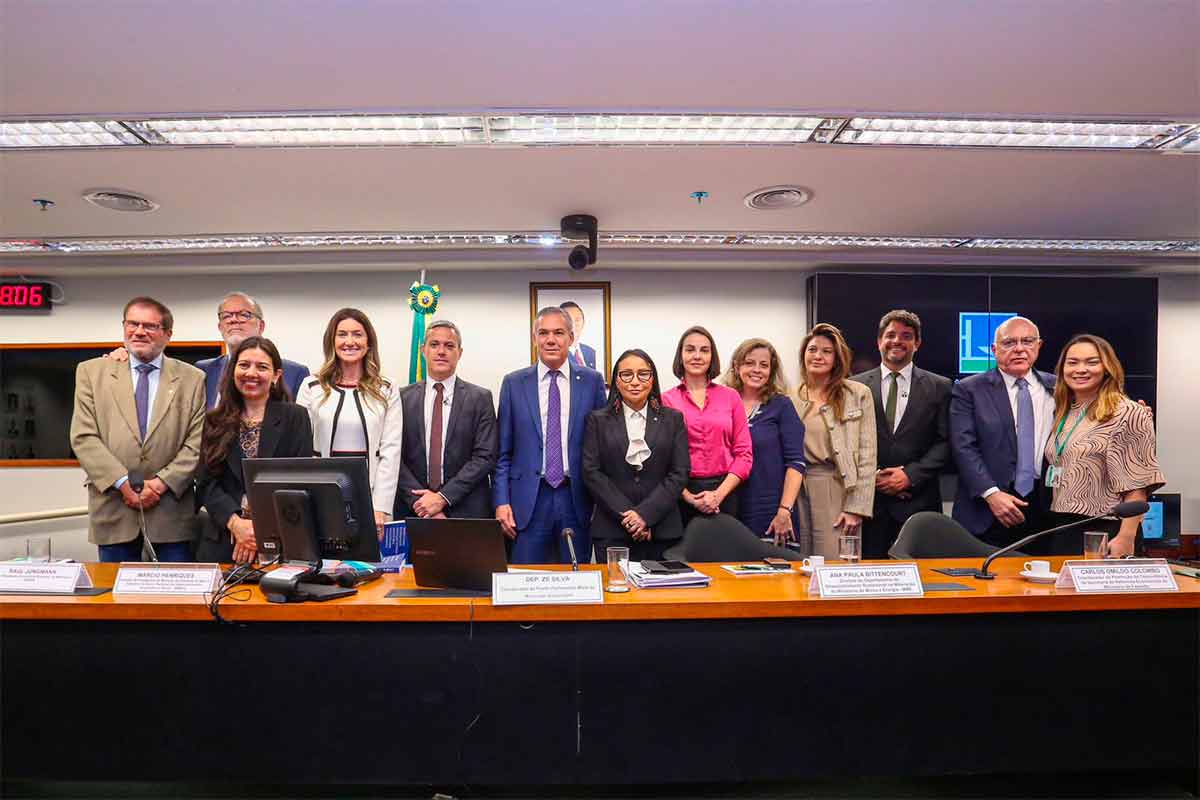 (Image: Presentation) The special committee of the Chamber of Deputies that oversees energy transition plans discussed today, Thursday (11), in a seminar, the need for the country to have a public policy for critical and critical minerals and the challenges for production a place to discuss and negotiate. “Critical minerals are the way forward and we cannot miss this opportunity”, argues Raul Jungmann, president of Ibram (Brazilian Mining Institute).
(Image: Presentation) The special committee of the Chamber of Deputies that oversees energy transition plans discussed today, Thursday (11), in a seminar, the need for the country to have a public policy for critical and critical minerals and the challenges for production a place to discuss and negotiate. “Critical minerals are the way forward and we cannot miss this opportunity”, argues Raul Jungmann, president of Ibram (Brazilian Mining Institute).The vice-president of Sigma Lithium, Lígia Pinto presented the perspectives of the lithium market and how the company positions Brazil as a leader in the sector. Sigma is now the fourth largest lithium producer in the world (it is the sixth largest when the numbers include low-level oil production), with 270 thousand tons of lithium concentrate for batteries per year. In 2025, with the expansion of integrated mining and processing activities, it will reach 520 thousand tons per year. The following year, there will be 770 thousand tons per year, and the industry will develop, entering the chemical chain, which will add even more value to the product.
This expansion will make the company even more competitive, as increased production will reduce Sigma's already low operating costs, explained the executive. Lígia showed parliamentarians, businesspeople and government experts who participated in the debate examples of other companies where Sigma showed its advantages due to its management model. “Sigma is low-cost, which makes it attractive even if lithium prices fall by 85% in the market. We are very financially responsible, we can act differently in the market at this stage, and we are facing this recession with the aim of reaching a level that strengthens us. Costs decrease with expansion. Furthermore, we will double the number of jobs, which is very desirable and important for the Jequitinhonha Valley”, he said.
In this highly competitive market, Lígia also highlights that Sigma's difference is the way it is produced, which, together with the best ESG practices, does not use harmful chemicals, drinking water or polluted energy, is carbon neutral and has no waste . “It is a consistent and durable product, from a genuinely Brazilian company”, he states. “We are no longer a country that offers to sell crude oil. We are a manufacturer of green technology products. That’s what makes us unique,” he says.
Ibram commissioned studies from the Center for Mineral Technology (Cetem) to support the development of standards for critical and critical minerals. At the seminar, the results were presented by researcher Lúcia Helena Xavier, as part of the workshop. He proposed that Brazil, independent of governments, could develop this structure. At a time when the world is discussing the transition to a low-carbon economy, having a plan and policy for this mining sector is crucial for Brazil to achieve its carbon neutrality goals for 2050.
